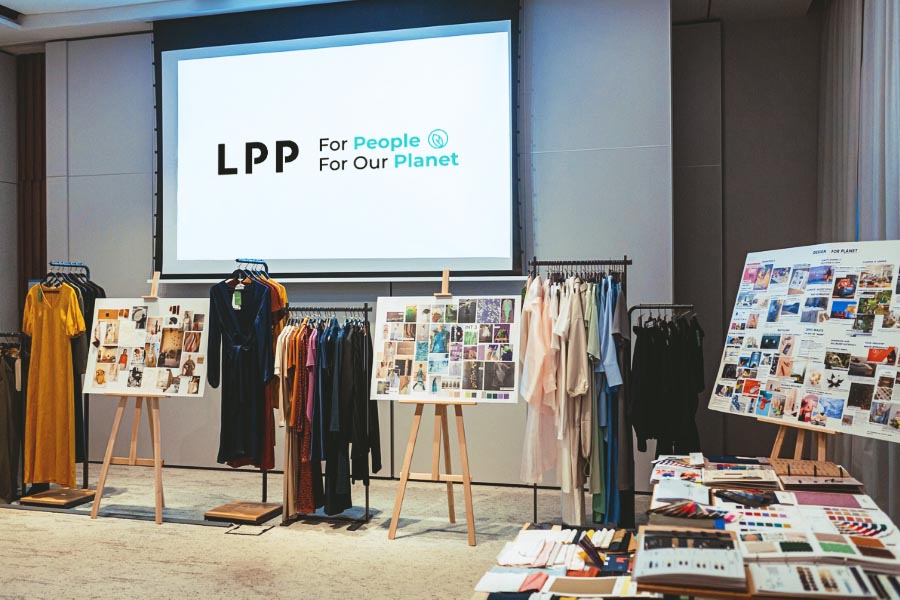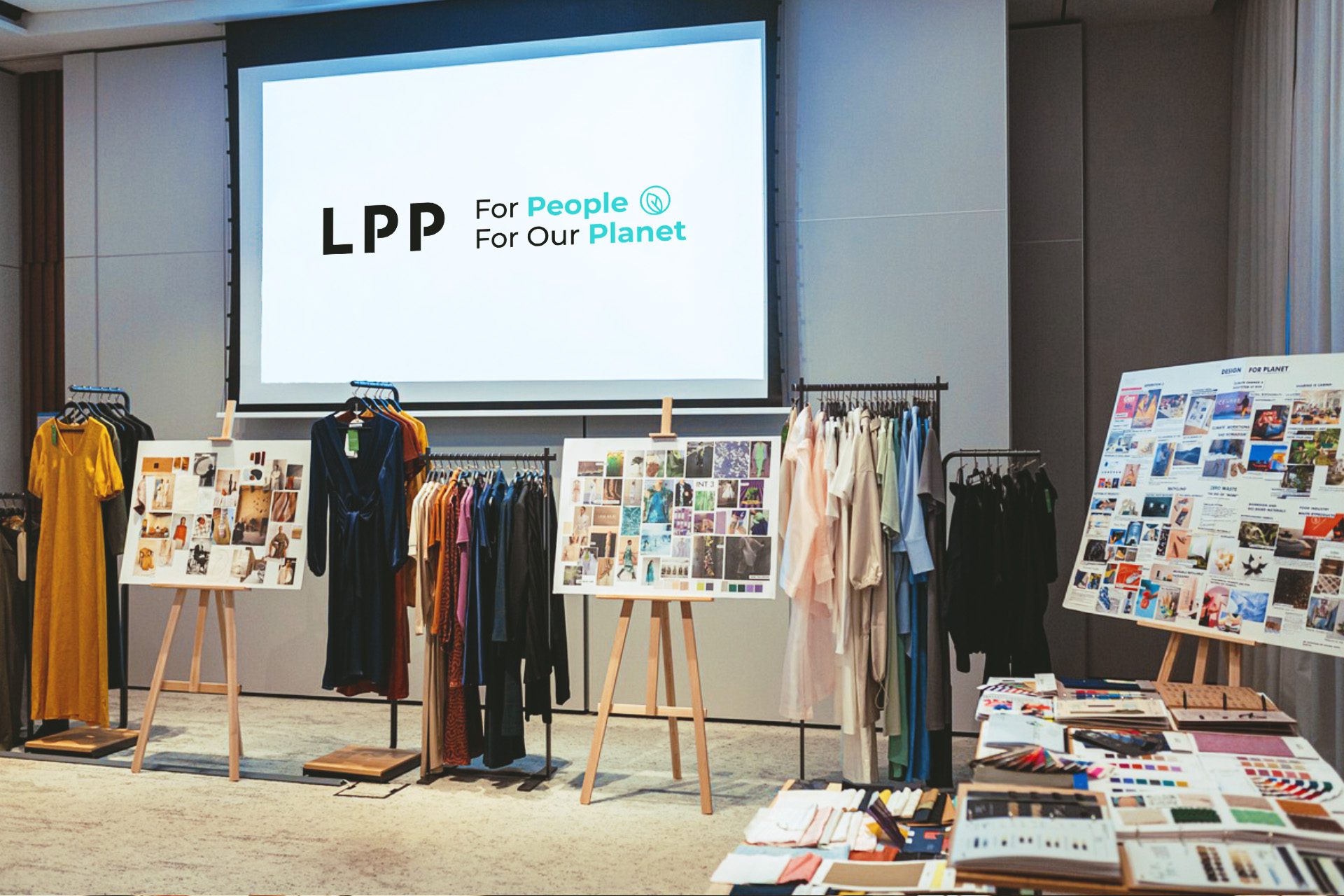The green shift in the LPP strategy

100% of environmentally friendly packaging and 50% share of eco collections in the flagship brand, Reserved, by 2025 and a reduction of carbon footprint – these are the key goals of the sustainable development strategy just announced by the Polish clothing manufacturer. The eco shift is LPP’s response to the new challenges faced by the fashion industry. The Gdańsk-based company is also continuing investments in new technology – the fastest in the world implementation process of electronic tags (the so-called RFID) in Reserved chain in Poland has just been completed.
Global environmental challenges are changing the realities of the fashion industry. The future of the industry in a few years’ perspective depends on the producers’ willingness to take more responsibility for people and the environment. This, in turn, entails the need to make strategic decisions which determine changes in the whole value chain. Indeed, environmentally friendly fashion is more than simply a T-shirt made of organic cotton. Its actual impact on the environment is the combination of many elements – from the selection of raw materials and suppliers, through transport and logistics, up to the sales network. In the face of the climate-related challenges, LPP, a Polish clothing company, wants to limit its environmental impact and declares a significant shift towards ecology thanks to its new sustainable development strategy.
– We are making a fundamental change in our approach to the way we run our business – says Marek Piechocki, CEO and founder of LPP. – In recent years we have done a lot as regards sustainable development by regularly increasing the share of eco collections or engaging intensely in improving working conditions at our suppliers. Now, however, we want take another step and make responsibility for people and the environment an integral element of our development strategy – adds Marek Piechocki. – LPP is a family company. Therefore, we feel particular responsibility for future generations and the conditions they will have to live in. As a co-founder of LPP, but also as a father and grandfather, I treat the implementation of the goals guiding our sustainable development strategy as my personal commitment.
The sustainable development strategy of LPP for the years 2020-2025 includes changes in four areas which will be implemented under the supervision of the newly created Sustainable Development Department. The most significant and large-scale actions will cover environmentally friendly production. In 2021 every fourth product of the Polish company will bear the Eco Aware tag, and a year later a used garments collection system will be introduced in every store of the five LPP brands.
In parallel, the company intends to invest millions of Polish zlotys in technologies allowing for textile waste treatment in the future. The long-term goals for 2025 include reduction of CO2 emissions by 15% and increasing the share of eco collections in Reserved to 50% (at present, the sales volumes of the brand account for approximately 40% of the group’s revenues). As part of the new strategy, the company will also focus on chemical safety of production, and in 2020 – as a first Polish company – it will join the ZDHC (Zero Discharge of Hazardous Chemicals) programme, committing itself to stringent standards for eliminating hazardous chemicals in the textile supply chain.
The third pillar of the LPP change will be the elimination of plastic packaging not subject to closed-loop recycling, which was started earlier this year by joining the New Plastics Economy Global Commitment initiative. In September this year, plastic shopping bags disappeared from the stores in Poland, and by 2025 the company will have eliminated packaging not subject to closed-loop recycling from the entire sales network and supply chain. It will use only plastics that meet one of the criteria: 100% reusable, recyclable or compostable. The new strategy also announces green solutions in the headquarters buildings and sales network. In 2021, 100% of the energy used to power the company’s servers and online stores will come from green sources. In 2023, all new company buildings will be eco-certified.
The Polish clothing manufacturer has been implementing the principles of sustainable development in business practice for some time now. An example of their application in the supply chain of LPP can be the logistics park in Brześć Kujawski, which is in the design phase. The flagship project of the Gdańsk company will be the first warehouse facility in Poland to have an international WELL certificate. This certification confirms the positive impact of the workplace on people’s health and well-being and has so far been used only in office buildings. The investment worth PLN 860 million will be completed in 2022.
Over the last few years, LPP has also initiated a number of pro-ecological activities. The materials used in its collections include organic cotton, TencelTM Lyocell obtained from wood pulp, organic flax or recycled fibres such as polyester from bottles. E-commerce deliveries of Reserved and Mohito brands are carried out only with the use of packaging made of recycled paper. A few dozen of Reserved, Mohito and House stores operate a used garments collection system and donate the clothes obtained this way to people in need. The company also controls the safety and impact on the environment in the supply chain – since 2013 the Gdańsk-based company has allocated over PLN 20.5 million to this end.
Parallel to the implementation of the new strategy, LPP intends to maintain the dynamics of business development, mainly due to investments in new technologies. The Polish manufacturer has completed the process of implementing RFID in the Reserved brand in Poland.
– We can honestly say that this is the fastest RFID implementation process in the world. On a similar scale, such a process usually takes about 2-3 years. This milestone puts us in the position of the leader of the Fashion Tech industry in Poland – comments Jacek Kujawa, Vice-President of LPP for IT. – The first assessment of benefits is ahead – we can precisely control what is on the sales floor and we achieve almost 100% compliance with our assumptions. This means an improvement in the availability of goods for customers by about 15%. Electronic tags also improve the processes in the store and have a positive impact on the shopping experience of our customers – the inventory process has been reduced about 100 times, and the time of registering goods at the checkouts has been reduced by about 70% – adds Jacek Kujawa.
In the years to come, the company plans to implement RFID in the remaining brands and will analyse further opportunities created by the use of electronic tags. From the perspective of the omnichannel strategy, an important functionality will be the potential use of warehouse space in stores and carrying out online deliveries directly from the store. This will affect the speed of order processing, but also the reduction of CO2 emissions resulting from limiting transport.

______________________________________________________________________________
LPP SA is a Polish family business and one of the fastest growing clothing companies in the region of Central and Eastern Europe. For over 25 years it has been successfully operating in Poland and abroad, offering its collection already on 25 markets, including in such prestigious capitals as London, Berlin, Tel Aviv or Moscow. LPP manages five fashion brands: Reserved, Cropp, House, Mohito, and Sinsay. The company has a chain of over 1700 stores with the total area of over 1 million sq.m. and operates online sales in 25 countries. On the basis of a global supply chain, the Polish clothing producer distributes over 200 million pieces of clothing to three continents. LPP plays another important role as it employs over 25 thousand people in its offices and sales structures in Poland, Europe, Asia, and Africa. The company is listed on the Warsaw Stock Exchange in the WIG20 index and belongs to the prestigious MSCI Poland index.

